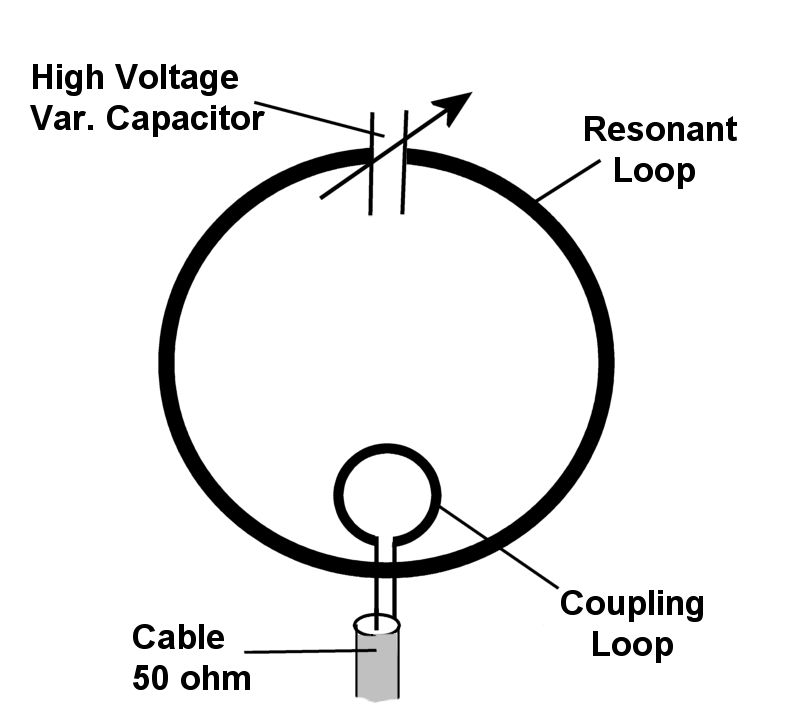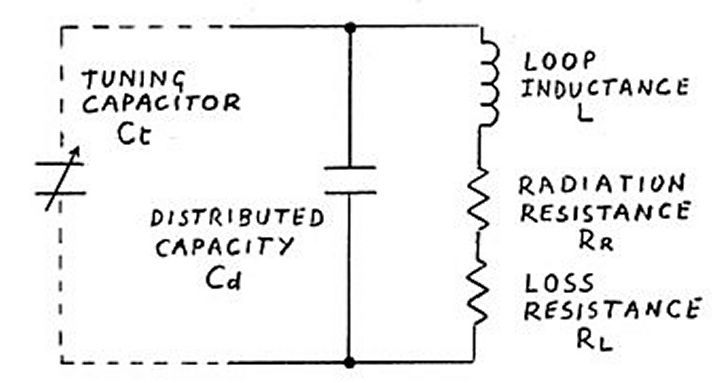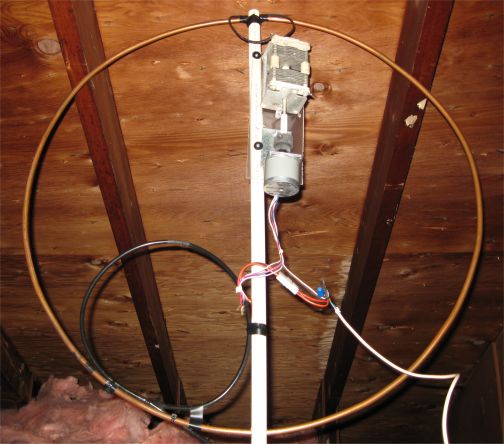
|

|
1-LoopAntHome
3-Characteristics
4-Comparisons
5-Data
6-Construction
7-Resources
|

|

|
2 - Introduction To Small
Magnetic Loop Antennas
|
So, what Is A Small Magnetic Loop Antenna?
- Small magnetic loop antennas respond to the complimentary magnetic component of radio waves.
- There are 3 basic parts: a main loop with a small gap, a capacitor bridging the gap, and some means of coupling the
signal to the transmission line.
Basic Loop

Enlarge
- A small magnetic tuned loop antenna is actually a resonant LC circuit.
Equivalent Circuit

Enlarge
- Magnetic loop antenna are VERY SMALL in size compared to the size of the wavelength being received
or transmitted.
- Radials are not required, nor are lossy loading coils!
- Using a variable capacitor allows you to tune these antennas for different frequencies and bands. Some methods of
remotely doing this will be dicussed later.
Variable Capacitor With Tuning Motor

Is BIGGER really BETTER (or even necessary)?
- A critical factor for a small loop antenna is the area defined by the circumference of the loop itself, not the overall size.
This makes a circle the optimum configuration, though other shapes will work.
- As long as the loop can be made to resonate at the required frequency, it can be very very small (less than 1/10th wavelength)
and still perform quite well.
- A small RECEIVING LOOP ANTENNA functions much like the secondary of a tuned transformer,
with the transmitter representing the tuned primary.
- As a TRANSMITTING ANTENNA, as long as a loop antenna has a low reactive impedance (zero at resonance) and a
resistive impedance that allows it to be an efficient radiator, it's size can be incredibly small in
relation to the wavelength involved. Optimum sized transmitting loops need to be slightly larger than receiving loops,
but still relatively small in size, at about 1/8th to 1/4 wavelength.
- It is important to note that when we say "the loop is 1/10 or even 1/4 wavelength in size", we are refering to the circumference
and not the overall diameter of the loop.
|
|
|
|









